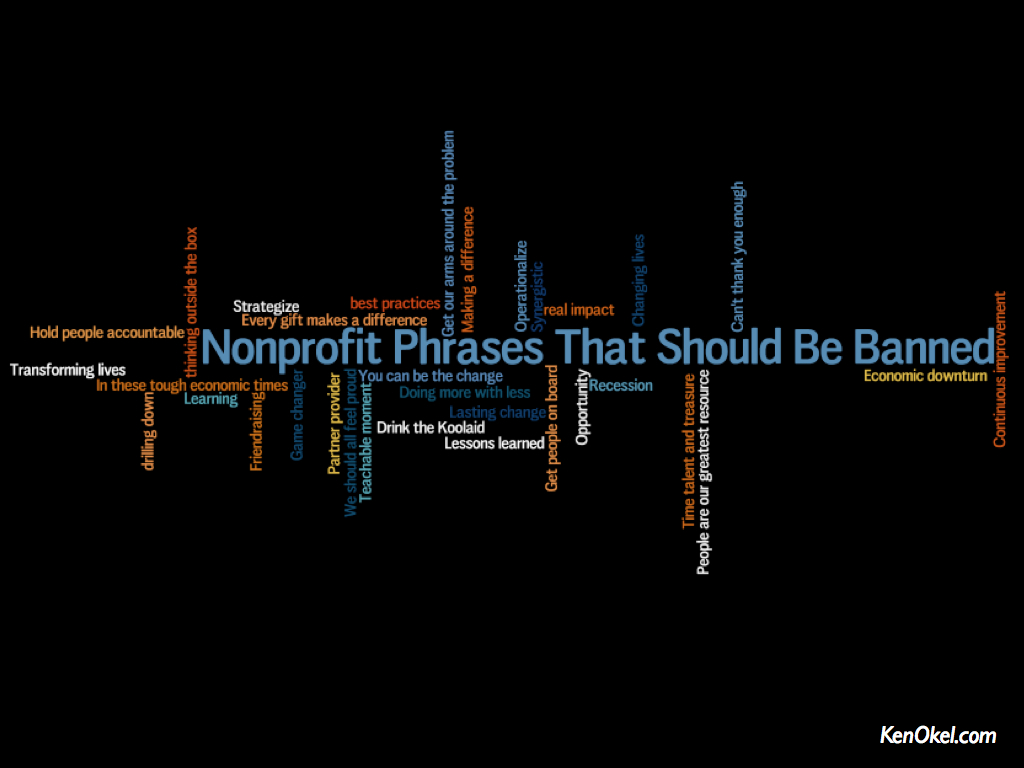Sometimes you can be so close to a problem that you don’t realize that you have a problem. Several months ago, I was left frustrated by a solicitation letter I received from a nonprofit.
The work that the organization does is excellent but the letter was a disappointment. It could be described as a celebration of cliches. Instead of clearly articulating a mission and the need for support, the writer used tired phrases about tough economic times, cutting-edge solutions, and extreme urgency.
Change the logo and it could have been from any nonprofit. This made me realize that many of these fine groupss can’t Clear the Path of a problem (weak writing) until staff realize that their actions undermine their organizations.
As someone who occasionally serves as a nonprofit consultant, I visited severalLinkedIn nonprofit groups, where I asked a simple question: What phrases should be banned from nonprofit fundraising? I expected a couple of replies.
Instead, dozens filled my inbox. People didn’t just answer the question but they also admitted to relying too much on these verbal crutches.
I’ve created a graphic of these forbidden phrases and will continue to add new words.
I’m suggesting that people print up this list and have it near their computer. My goal is to help an industry realize the importance of clear and original writing. Here are my suggestions to them, which can also apply to any business:
- Be clear. You’re not paid by the word. You’re paid to motivate people to give money. No one wants to read a book or a novella after he or she has come home from a busy day of work. State the problem and how I can be part of the solution. Make you copy short and easily scanned by the reader.
- Use panic sparingly. If every day is a crisis, then why should tomorrow be any different? Even Superman would get tired of having to rescue the same person every day. Avoid phrases like, “Now, more than ever…”
- Make concepts real. If a problem affects 75,000 people think of a way that makes it easy for your audience to imagine that concept. How many people fit into a nearby stadium? Can you say that your problem would fill that stadium 1.5 times?
- When you sound like everyone else, then you don’t stand out. Under deadline pressure, you may be tempted to reach for your bag of trusty cliches. Just remember, your solicitation letter or sales copy isn’t the only piece of mail that someone receives. You’re not writing in a vacuum. If you want people to think of you as being different than the competition, you need to take the time to stand out.






